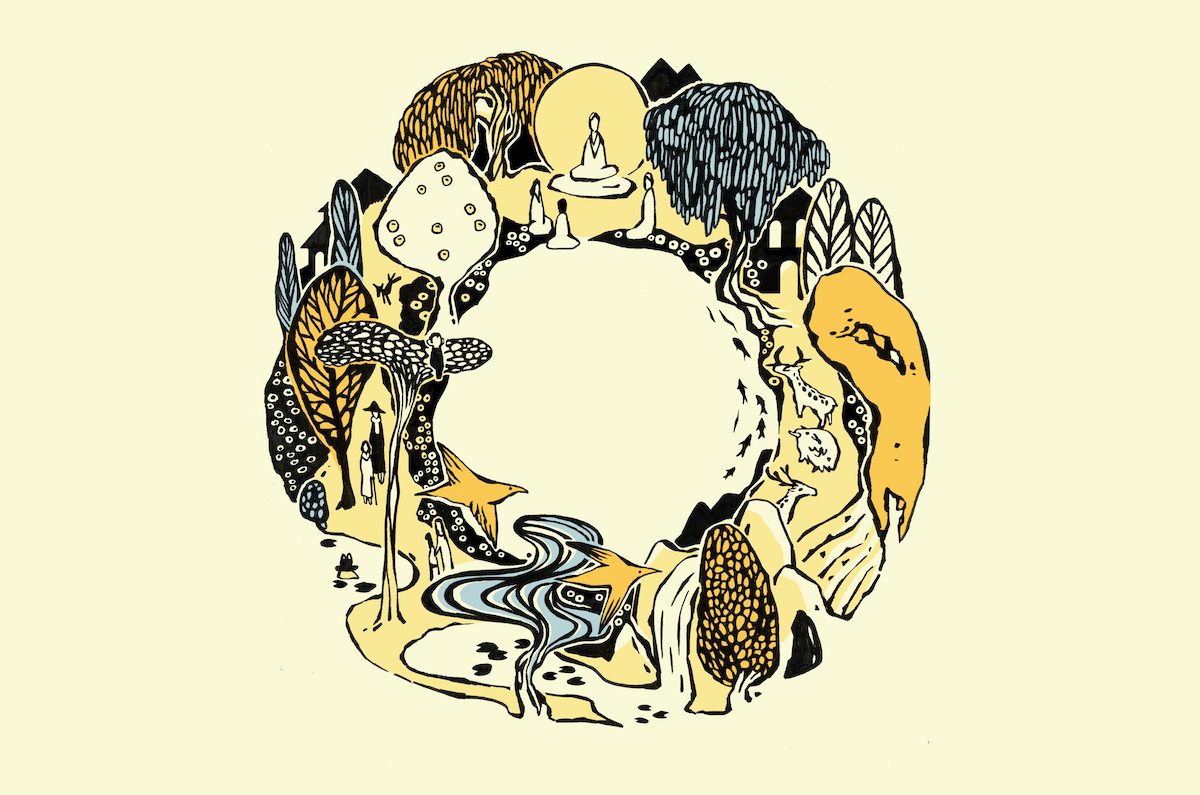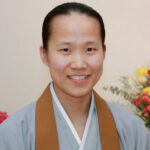“Let us turn a life of resentment into a life of gratitude.” This is the main teaching I remember from Won Buddhist youth services in Korea. When I first learned this teaching as a teenager, I was told to find gratitude in everyday life and live with a sense of gratitude. I soon realized how easily I became resentful and how frustrating this could be. Gratitude helped me redirect my attention from complaining to appreciating.
After a few years of practice, I was able to find more gratitude in life, which brought me more joy and contentment. I could experience and appreciate what is here instead of feeling a lack of what is not here. However, deep down I felt something wasn’t quite right. I realized that I was mostly grateful for things that were going well for me and for people who favored me. My gratitude was limited in self-centeredness. Wanting to go beyond this, I started to revisit the teaching of the Fourfold Grace – an essential practice in Won Buddhism that cultivates genuine gratitude.
In Buddhism, interdependent origination is the law of causality. According to this fundamental concept, everything is part of a web of interconnection, depending on limitless causes and conditions undergoing a continual process of transformation. In other words, nothing exists as independent, permanent, or fixed. This is called emptiness or the empty nature of reality. All dharma teachings are based on and lead us to a realization of this interdependent and empty nature of reality. This realization—that all phenomena are woven together—enables us to live a life with infinite wisdom, joy, and compassion for all.
The teaching of the Fourfold Grace helps us recognize everything that nourishes and supports us.
Sotaesan was the founder of Won Buddhism. His definition of the word “grace” (EunHye in Korean) describes the interdependence and interconnection of everything in the world. In order to understand this, Sotaesan asks us to consider life without our relationships with other people.
For example, let’s think about a glass of water. Before we can have a drink, we have to get water from a faucet and pour it into a cup. The faucet is connected to a pipe that is attached to multiple other pipes that are hooked into a water tank. Countless people have worked to perfect this water-delivery system. Beyond all this, there is the glass itself, which we use to hold the water. Different people had to design, manufacture, deliver, and sell this glass. Numerous causes and conditions come together just to allow us to drink a cup of water.
This also rings true for the food we eat, the clothes we wear, the houses we live in, and all the goods and services we use on a daily basis. Sotaesan recognized and understood that this web of interconnection is endless. “If there is a relationship wherein we cannot live without the other,” he said, “then where would there be a grace greater than that?”
In Won Buddhism, grace isn’t something that we receive from God or some higher power. Grace comes from recognizing and appreciating the indispensable relationships in our lives. Sotaesan’s view is that, not only are we interrelated, our individual existence is indebted to one another. This realization of interconnection and indebtedness allows us to be more understanding, responsible, and selfless.
To help Won Buddhists contemplate this web of interconnection, Sotaesan created a list known as the Fourfold Grace. This list encapsulates every interconnected aspect of our lives. In other words, it sums up everything that deserves our gratitude.
- Grace of Heaven and Earth: air, ground, sun, moon, wind, clouds, rain, dew, etc.
- Grace of Parents: parents and those who raise, protect, and educate us.
- Grace of Fellow Beings: all beings, including animals and plants.
- Grace of Laws: regulations and laws that bring harmony and justice to individuals, families, societies, nations, and the world
The teaching of the Fourfold Grace helps us recognize everything that nourishes and supports us. As a teenager, my struggle was that I only saw favorable relations as grace and rejected everything else. But our lives span good times and bad times, so we need relations that benefit us and challenge us. By cultivating unconditional gratitude, I grew to respect interdependent origination. I learned how to recognize the difference between my own gratitude for “what is good for me” and Sotaesan’s gratitude for “what is.”
“[The Fourfold Grace] is all things in the universe,” Sotaesan said. “There is nothing among the myriad things in heaven and earth or the dharma realm of empty space that is not the Buddha. Thus, regardless of time or place, we must never neglect to maintain a respectful state of mind and should treat the myriad things with the same pure mind and pious attitude we have for the venerable Buddha.”
In this way, the Fourfold Grace continuously challenges us to turn a life of resentment into a life of gratitude.

